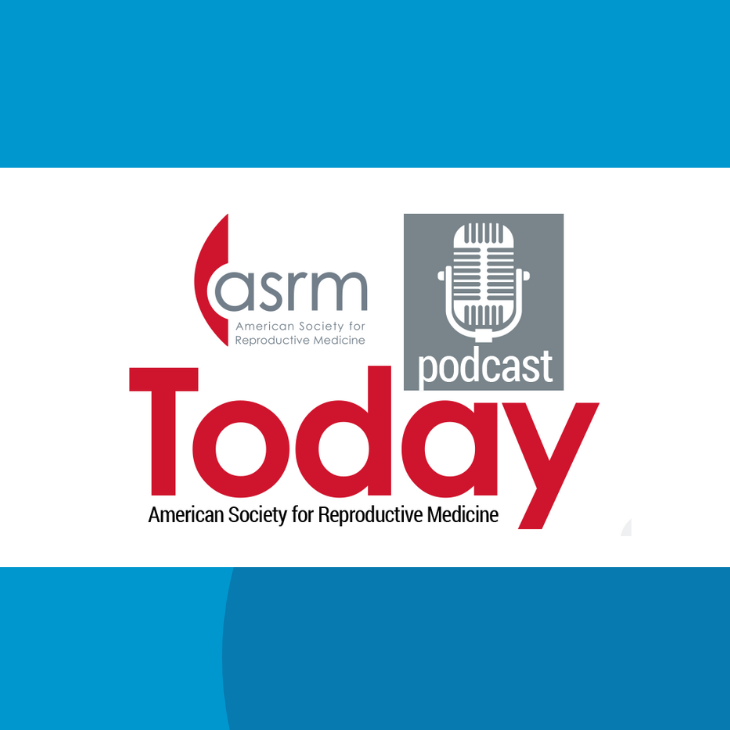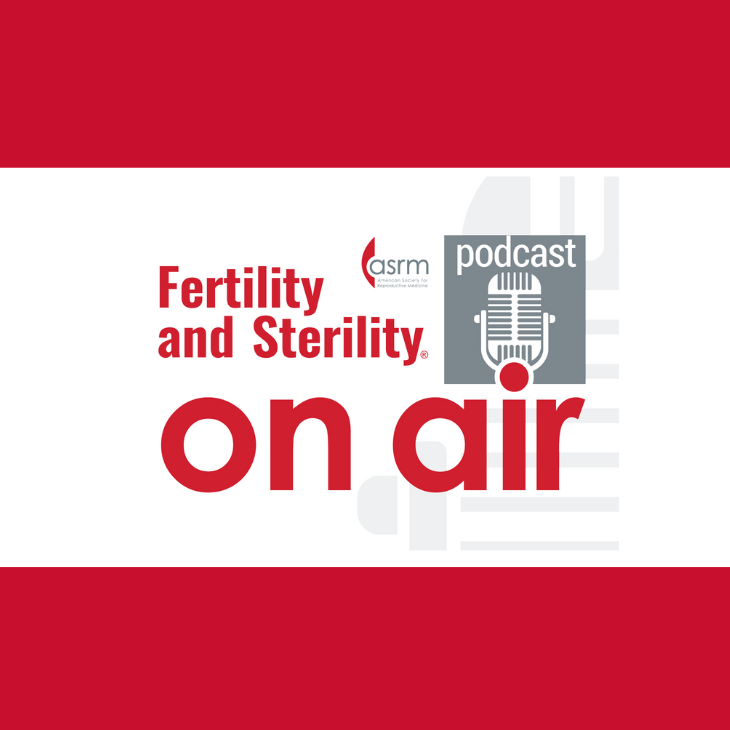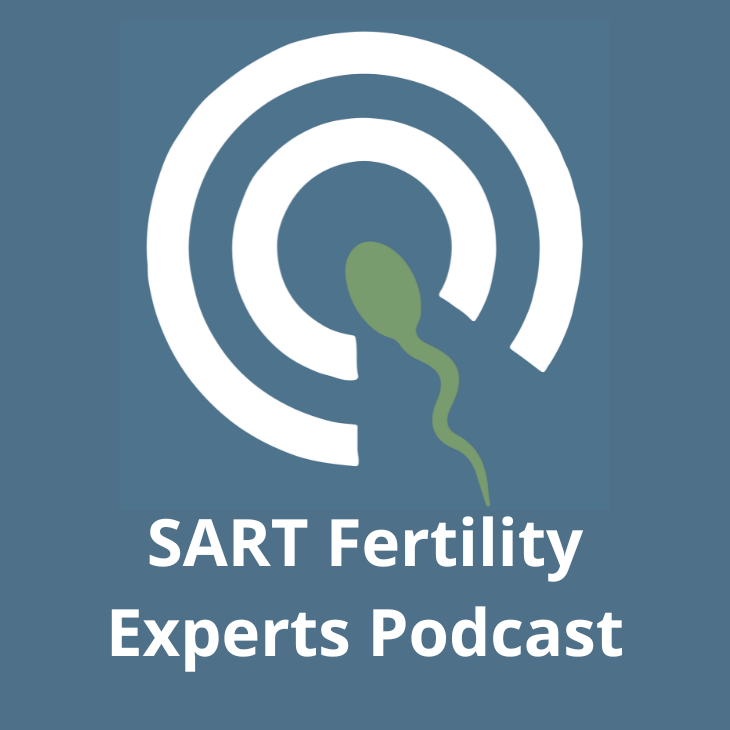
Transcript
In this podcast episode, the hosts discuss the dynamic landscape of ballot measures related to reproductive rights, including abortion, IVF, and contraception, across several U.S. states. Jesse and Anna highlight how these measures are citizen-led initiatives that require substantial effort to gather signatures and secure approval. They cover recent developments in Arizona, Colorado, Florida, and other states, emphasizing the significance of voter engagement. The podcast also promotes advocacy efforts, such as radio ads, postcard campaigns, and collaborations with VoteER to encourage civic participation within the healthcare community.
Are you ready to be at the forefront of family building and reproductive health? Join us for ASRM 2024 in Denver, Colorado, October 19th through the 23rd. This year's event features expanded meeting spaces, more seating, and a new global health track as part of a comprehensive program that goes beyond infertility to cover all aspects of reproductive health. We welcome members, trainees, and colleagues from every corner of the globe.
Join us for an unforgettable experience at the ASRM 2024 Scientific Congress and Expo. For more information and to register, visit asrmcongress.org.
Policy Matters. Policy Matters.Policy Matters. Policy Matters. Policy Matters.
Policy Matters. From the ASRM headquarters in Washington, D.C., this is Policy Matters. I'm Jeffrey Hayes, and guiding us in a discussion of ballot measures today is Jessie :oschand Anna Hovey.
Jessie, I turn it over to you. Thanks, Jeff. Thanks for having Anna and me on to talk about something that is actually exciting and maybe a little bit less scary and defensive than some of the things we usually talk about with you.
So this is great. Anna, you and I have been talking about ballot measures a lot. And I actually brought this up at a meeting this morning that it is now 2.15 p.m. Eastern Standard Time on August 21st.
And yesterday, there were two changes to what could potentially be on the ballot. So this is really like a dynamic, ongoing situation, which is both exciting and I think anxiety provoking to those of us who are trying to make some plans. So I will just sort of give an overview and then you could maybe give us some of the details about how we in the Office of Public Affairs are engaging and also these really exciting opportunities that we're going to have for our members to engage as well.
So as we've seen in the last two election cycles, reproductive rights and specifically IVF and fertility are on the ballot. So really quickly or sort of an overview, a lot of what we do in the policy shop is legislation, which is introduced and passed by elected officials. Ballot measures are really citizen-led, which I think most of us find really exciting.
So two years ago, Kansas, which at the time had an abortion ban, went through the process of putting a ballot measure or a ballot amendment on their November ballot. And what that did was it enshrined the right to abortion in their state constitution. Last session and a lot of our members took action on this as well.
We saw it in Ohio and the Ohio ballot measure enshrined the right to reproductive rights and that included abortion, contraception, and fertility in their ballot. And again, the citizens of the state have to go through a process not only of writing these measures, but gathering enough signatures to even be able to submit them for consideration. And that bar is pretty high.
So for example, and I think what is interesting about that is everybody always knows that they have to collect more signatures than are even expected because some of those signatures, for whatever reason, even illegibility, are bound to be thrown away. So for example, in Nevada, which we're going to talk about in a second, the campaign collected 102,362 signatures. They submit those to the Secretary of States and their respective states.
The Secretary of State comes back and either affirms the ballot measure or does not. Potentially then it could go through a series of legal hurdles and challenges. And then between the time it is sort of affirmed to be on the ballot at November 5th, all of this work gets done to educate the members of the state on what the question will read on the ballot, why that's important, and why they should vote.
So as of yesterday, eight states have introduced ballot measures or have confirmed ballot measures to either expand or protect abortion and reproductive health access if they pass in November. Again, as of yesterday, one of those states is Arizona, and that is being challenged again based on the language in the ballot measure. We could talk about that in a bit.
Colorado, Florida, Maryland, Montana, Nevada, New York, and South Dakota. This is an interesting swath of states because some of these states actually allow, they have protections in place already. So for example, Florida, Maryland, Nevada, and Montana currently do, nope, ignore Florida because things have changed.
Wow. Jeff, I wish I could say fix this in post. You know, everyone who's listening, just pretend.
But everybody, but everybody, it's changing constantly. It's changing, that's the thing, you know. Florida, for better or for worse, Florida at the moment has very restricted abortion access, but it is surrounded by states with total bans.
Maryland, Nevada, and Montana, and New York as well, allow for abortion, allow for IVF, allow for contraception. But again, the states surrounding them do not, and so they are known as sanctuary states for those folks living around them that have restrictions or bans. South Dakota currently has a total abortion ban with criminal provisions.
So we have seen, as we've seen in other states, sort of this really devastating exodus of healthcare providers, you know, who feel like they can no longer really safely provide reproductive care for their patients. So there are some places that are known as healthcare deserts, reproductive healthcare deserts in specific, and South Dakota is one of those. So Florida, the basis for my little flip up there, Florida has a six-week abortion ban.
The same week that that six-week abortion ban was enacted was the same week that their Supreme Court allowed this measure to go on the ballot. And so since then, really, so many community members in so many languages have been making it a point to speak to their neighbors and speak to their communities about the pressing need to vote for Prop 4, is the measure that's known in Florida to sort of restore access and also ensure protections for providers. So again, as we spoke about in South Dakota, we see that when any kind of reproductive healthcare is either restricted, banned, or criminalized, healthcare providers leave the state, or they cannot practice up to the best of their abilities.
And so that is part of the conversation in Florida is to say, look, between two months when this six-week ban was enacted and November 5th, we already are seeing the signs of a healthcare exodus. Physicians are leaving the state, physicians are trying to practice in other states, they're telling their patients that they have to leave the state for some types of care, that's why it matters. And then we have states like Colorado, Maryland, and New York, which are taking this opportunity to expand their protections even further.
So New York has a measure, it's called Prop 1, it is the Equal Rights Amendment, which is different from the ERA, I think that some of us know federally, but this would amend the New York state constitution to prohibit the denial of rights to an individual based on their pregnancy, pregnancy outcomes, and reproductive healthcare and autonomy. And within that, it considers method of conception as a protected class. So sort of tying that back around to IVF.
So Anna, we have been going back and forth a thousand times, as you very helpfully sent me in these notes, there are a handful of other states that are still sort of up in the air. So Arkansas is their secretary of state declined to put this on the ballot that is being litigated. There are three potential ballot measures in Missouri, there are two in Nebraska, there is one in Pennsylvania, and one is Oklahoma.
Who knows how out of date this podcast will be in an hour. But what have you and I and our office been working on in regards to these ballot measures? Um, yeah, so let me do a full self intro, because I don't think I've formally appeared on the podcast before. I'm Anna, I am the advocacy engagement specialist in the Office of Public Affairs.
And so our office has been doing a couple different things to try to get these measures, these protective measures passed. One is that we're going to be running targeted radio ads in English and Spanish in some states as well, in affected states closer to election time. So we've done the same thing in past legislative sessions.
And I saw, I believe we saw kind of repeated success with this form of advocacy. So we're going to be doing it again. Something else we're doing is we are offering postcard writing at our booth at the ASRM Congress, Congress and Expo in October.
This allows member advocates to kind of appeal to undecided voters in states where reproductive care is on the ballot. This is also something that we've done in past years, find it to be a really strong form of advocacy, because it's especially important for people to hear about, hear from people who work in the healthcare field and not just from politicians, so people that it directly impacts. Another thing we are working on right now is we're publishing a voter scorecard, highlighting where Senate and House candidates and incumbents stand on IVF and reproductive rights, then how they voted on relevant legislation in the past.
This is just to make sure that our members and advocates can be as informed as possible when they cast their ballots. And did I miss anything, Jesse? I think that's summarized as the current efforts. Yeah.
So I think, do you want to, I know this is not specific to ballot measures, but do you want to give a little plug to VoteER as well? Oh, yes. Yeah. We have been working with a grassroots organization, nonpartisan grassroots organization called VoteER.
Basically their mission is to get healthcare, people who work in the healthcare field as involved in civic engagement, as civically engaged as possible. They have found that civic engagement in the form of registering to vote and appearing at the polls is lower in people in the healthcare field. So with them, we're just trying to change that.
So they have a really great resource, which is like a badge, a QR with a QR code on it that you can either wear around your neck when you see patients or with your peers in your community, whatever you want. You can clip it to your existing badge and anyone who you're speaking with can easily scan the QR code. It can allow them to either register to vote basically just on the spot.
It shows them polling locations. They can get any kind of information they need on where they can vote and who the candidates are in their region. And it can also allow them to order a absentee ballot.
So that's also another really useful. And I think that's on our website, right? It is. Yes.
So we have several blog posts about our partnership with VoteER and also our Instagram, which is ASRM underscore org, I believe. I always forget the underscore. ASRM underscore org.
We have a post from a couple of weeks ago where you can see that there's also a URL. So there's the scannable QR code and the URL, whatever you want to use is fine. And we will also have some VoteER resources at the meeting.
And I think registering at the meeting might be too late, but there's a lot of good resources regardless. Because it is ahead of voting time. It's just maybe past registering time.
Yeah. So I think at our meeting, if and when you're there, please stop by our policy booth. As Anna said, we will have these host cards.
And what has been shown to be most effective when there is a campaign measure or any kind of a ballot is what they say, three touches, right? So if we're speaking to Jeff and Anna reaches out and emails Jeff and says, Jeff, have you heard about Prop 4? And then Jeff gets a postcard from his reproductive health provider colleague, even out of state. And then Jeff sees a poster for this. The odds that Jeff is going to show up to the ballot and know what to do with this ballot measure increased something like 75 fold.
So these postcards are super short, super easy, and incredibly effective. Also, we will give you a sperm pen, which is very exciting. And I believe stickers.
So just come and help us get the word out about these ballot measures and make a really giant difference. I don't even get stickers. Well, Jeff, you will if you come to the Office of Public Affairs booth and write a postcard.
You have to write the postcard. I do have to write the postcard. Absolutely.
How can people get in touch with you if they have questions? Fabulous. You can email me at JLOSCH at ASRM.org. And Anna? Reach me at A-H-O-V, like Victor, E-Y, at ASRM.org. Or if you don't want to reach out to either of us directly, you can do publicaffairs at ASRM.org. Or if you absolutely get lost, ASRM at ASRM.org, and we will find a way to get it where it needs to go. Thank you both so much for bringing us up to date on these things today.
As always, folks, please subscribe, rate, download the show through Apple, Poppin, Google, whatever your podcasting needs are. And until next time, this is Policy Matters, and I'm Jeffrey Hayes. The information and opinions expressed in this podcast do not necessarily reflect those of ASRM and its affiliates.
These are provided as a source of general information and are not a substitute for consultation with a physician.
ASRM Today

ASRM Today: Equity, Access, and Innovation, Episode Seven: ASRM 2024 Preview Part Two
Explore key sessions at ASRM 2024, including mental health in fertility care, male infertility research, and equitable contraceptive access. Join the discussions in Denver.
ASRM Today: Equity, Access, and Innovation, Episode Seven: ASRM 2024 Preview Part One
Preview the ASRM 2024 Congress with insights on postgraduate courses covering fertility education, innovation, and increasing access to reproductive care.
ASRM Today: Equity, Access, and Innovation, Episode Six: Patient Education
This episode explores the importance of inclusive, plain-language patient education, helping patients understand diagnoses and treatment options.


